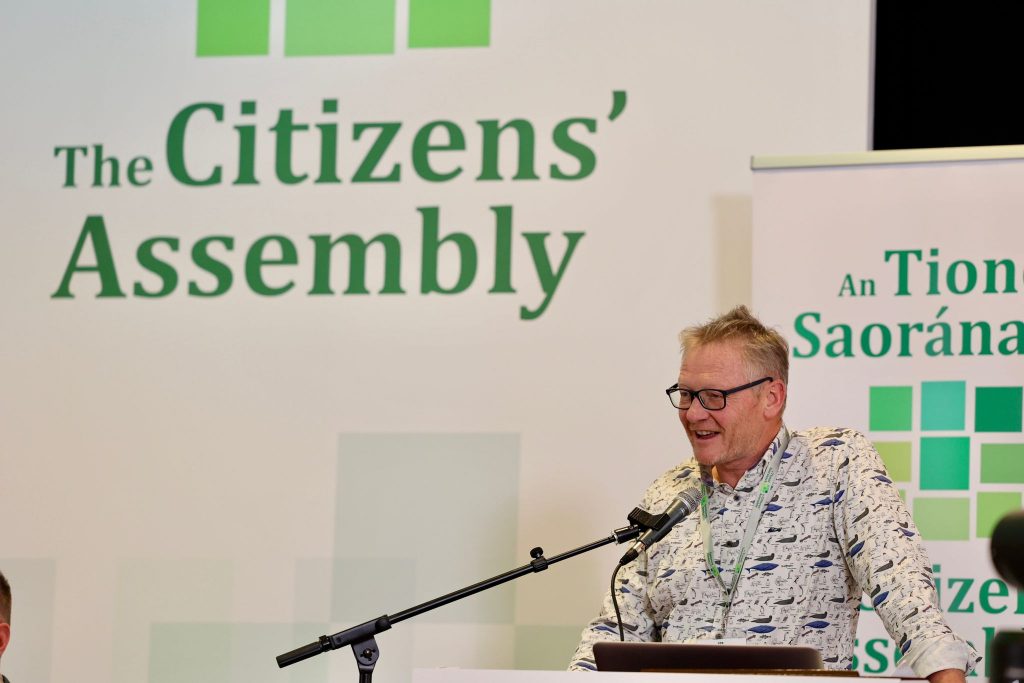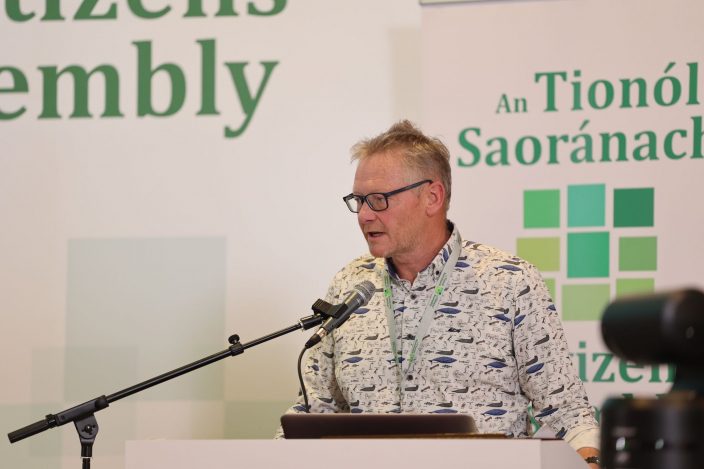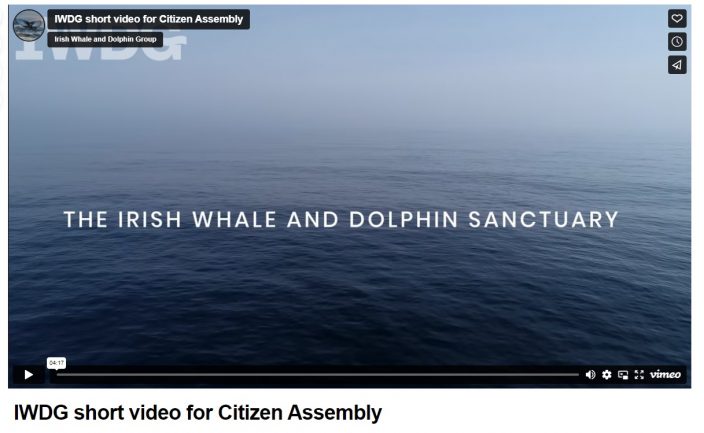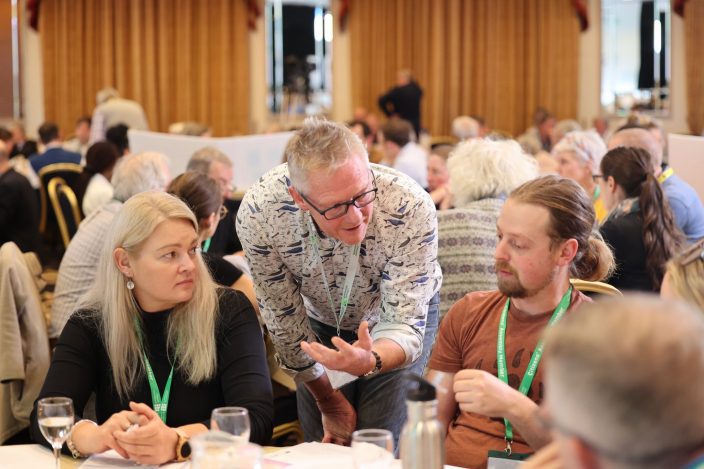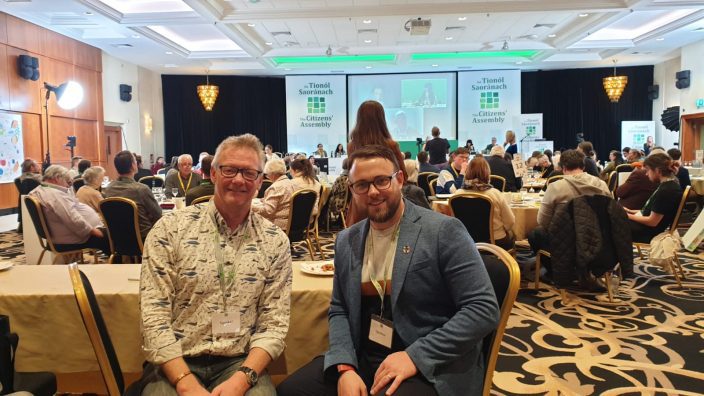Citizen Assembly on Biodiversity
Grand Hotel, Malahide 5 November 2022
We are very lucky in Ireland, indeed privileged to have such a rich biodiversity of marine species such as whales and dolphins, seabirds, seals, sharks and even tuna. We have a huge EEZ, 7 times our land mass, hosting a variety of marine habitats, up to 350 kms offshore. But with this comes a responsibility. The responsibility to manage, conserve and protect our wonderful marine biodiversity. Providing protection to our marine biodiversity is not an obligation but a responsibility and an opportunity.
In my short presentation I would like to share 3 ideas with you: firstly we need knowledge, secondly we need to build partnerships with inshore communities and finally we need to build an ocean literate island nation so we all are concerned and embedded in the health of our marine biodiversity.
Increased knowledge
Many of these species are top predators that can reflect the health of our oceans, as they are at, or near, the top of the marine food chain. Healthy populations of marine predators indicate healthy seas. But we need knowledge on where and when they occur and what they do. We need knowledge on their health status and habitat requirements.
We do have good knowledge for some species and areas which inform conservation actions, and we must act now to protect and enhance. For example, humpback whales are increasing in our inshore waters as populations recover after massive human over-exploitation. Blue-fin tuna are occurring with increasing frequency, likely driven by climate change induced increases in water temperatures and the changing distribution of their preferred prey.
But what was the historic abundance of our marine top predators. We don’t know what pristine marine environments look like.
What is the baseline against which we measure conservation success and failure ?
How are these baselines changing, in a changing world, and how does this inform our conservation objectives and strategies ?
With contemporary knowledge we can better inform our managers, inform conservation actions and policies. Better knowledge will enable us to work with our offshore renewable sector to identify sensitive areas which need to be avoided during planning, inform visiting navies when and where NOT to play their wargames. Engage with emerging issues such as deep-sea mining that are identifying deposits on the seabed for potential exploitation.
This doesn’t mean we don’t act now on the knowledge we already have but we need to build the evidence to convince stakeholders that conservation actions are necessary and hopefully working.
Fishing and coastal communities
Secondly, and with apologies for mis-quoting Finding Nemo, “fish are actually food not friends” and we need to ensure our fish stocks, especially inshore, and especially the “forage fish” are in good condition.
Forage fish are not included in present fisheries management because they are not consumed by humans, but they are essential for a suite of marine predators. Most forage fish occur within our territorial waters, which extend out to within 12nmls off our coasts which we, not the EU, are responsible for managing. We can decide to restrict or cease trawling on forage fish and let them be foraged on ! We urgently need to respect forage fish as essential ecosystem components and ensure we consider the food requirements of all marine predators in our fisheries management, not just humans.
The knowledge we have gained, together with information on ecosystem functioning, will enable us to work with coastal communities and especially fishers, in a spirit of respect, to rebuild fish stocks and restore habitats. To achieve this I think we need a conversation about compensating fishers for not fishing areas to enable recovery. This is the model used on land where farmers are paid for environmental measures, so why not apply to the marine environment. This compensation can be used to engage fishers in monitoring conservation actions, including MPAs.
We need a number of pilot schemes where all activities, especially fishing, are excluded from an area and the site is monitored extensively; how long will it take benthic habitats to recover? will fish biomass increase, will the area be colonised by sharks, skates and rays and provide foraging for dolphins and porpoises
Money invested in protecting and rebuilding marine habitats will be returned many times over, compared with similar compensation packages on land. Many marine habitats and species are resilient, if we give them the time and space to recover.
Ocean literacy
Finally we also need an ocean literate society where we understand better the role of our oceans in controlling climate, sequestering carbon, providing energy and transport, supporting productivity and building resilience. Where all feel like islanders, surrounded by rich and functioning seas.
Without gaining and sharing knowledge, and showing respect, for the diverse stakeholders for which we all share a responsibility for our oceans, it will be hard to make progress on protecting and restoring our wonderful marine biodiversity around the island of Ireland.

